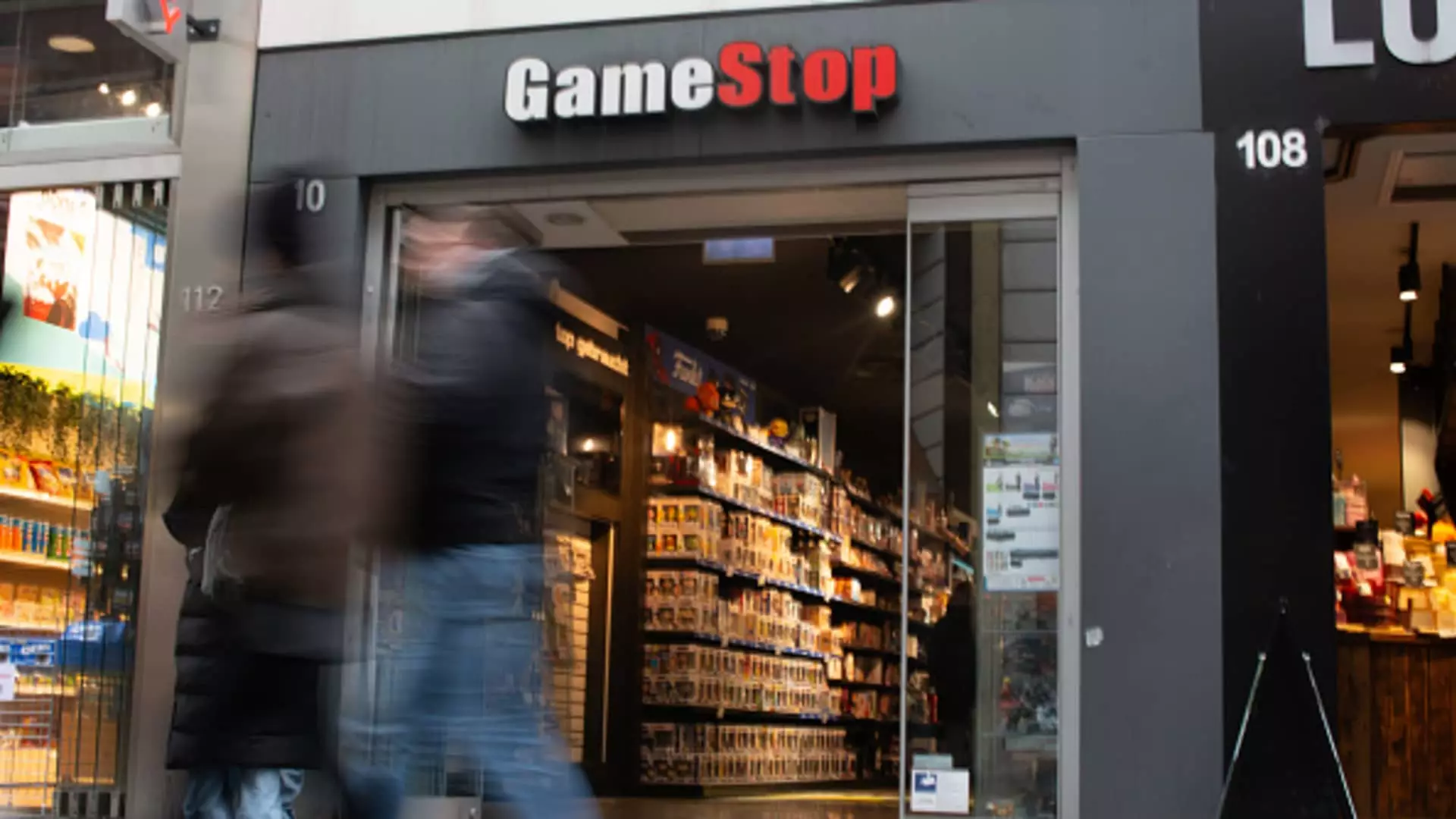The stock market’s after-hours trading can often present a volatile environment, reflecting traders’ immediate reactions to earnings reports and outlooks. This past session saw notable movements from several companies that either exceeded or fell short of market expectations. This article delves into the significant players making waves in post-market trading and their respective performances, offering insights on why their results shaped investors’ sentiments.
In a surprising twist, GameStop, known primarily as a video game retailer and meme stock darling, witnessed a 7% surge in after-hours trading on the announcement of their potential foray into cryptocurrency. Insiders suggest that while the company is currently exploring the feasibility of investments in Bitcoin and other digital currencies, it is still weighing whether such a strategy harmonizes with its existing business model. This speculation around a shift into the crypto realm underscores the ever-evolving landscape of traditional businesses branching into new digital territories, indicative of a broader trend in retail adaptations.
Roku, a significant player in the streaming services arena, experienced an impressive 10% jump in its share price despite posting a fourth-quarter loss of $0.24 per share—narrower than the predicted $0.40 loss. Additionally, its revenue of $1.20 billion surpassed expectations of $1.15 billion. This performance reflects Roku’s ability to attract users and integrate advertising successfully, leaving analysts cautiously optimistic about its path forward. Such resilience amid economic headwinds emphasizes how investors can have a nuanced view of earnings reports, focusing on potential growth channels despite short-term setbacks.
Airbnb’s shares shot up by 12% following a strong earnings report that showcased a profit of $0.73 per share against the analysts’ forecast of $0.58, paired with impressive revenue of $2.48 billion. This growth signifies the company’s ability to rebound from the pandemic’s impact on the travel sector, revealing strong demand for vacation rentals as travel recovers. As travelers increasingly seek alternatives to traditional hotels, Airbnb seems to be capitalizing on this paradigm shift, positioning itself as a pivotal player in the travel industry resurgence.
Coinbase, the cryptocurrency exchange platform, saw its shares rise nearly 1% after reporting surprisingly robust fourth-quarter earnings, indicating earnings of $4.68 per share—significantly above analyst estimates of $1.81. With a revenue of $2.27 billion, Coinbase benefited from heightened trading activity, fueled by a broader rally in cryptocurrencies. This development is indicative of the volatility in the crypto market and how significantly it can impact dedicated trading platforms, reflecting a growing investor inclination towards cryptocurrencies as a serious asset class.
Conversely, Applied Materials saw a 5% dip despite an overall positive financial report. The semiconductor manufacturer’s forecast for second-quarter revenue was below expectations, even while it had demonstrated strong past performances. Similarly, Twilio faced a 7% decrease in its share price due to uninspiring first-quarter guidance, highlighting how even slight misses in expected performance can lead to notable investor pullback. These case studies illustrate the delicate balance technology companies must maintain to keep shareholder optimism intact in an increasingly competitive landscape.
DaVita, a key player in kidney dialysis services, experienced a drastic 10% drop following guidance that suggested future earnings might underperform expectations—forecasting between $10.20 and $11.30 per share when analysts expected $11.38. Despite this, DaVita had beaten expectations for the fourth quarter, demonstrating a complex narrative for this company. The decrease in share price illustrates how forward guidance often holds more weight than previous performance, revealing investors’ demand for clarity and realism over mere past successes.
The fluctuations observed in these after-hours trades reveal intricate market sentiments that hinge upon both immediate earnings and future outlooks. Companies like DraftKings and Leggett & Platt managed gains after adjusting their guidance upward, which sparked investor interest. Yet, companies like GoDaddy and Informatica faced sharp declines, showing that startup guidance can easily temper initial successes if expectations shift unfavorably.
The after-hours trading landscape remains a crucial barometer for investors evaluating corporate performance. The differences in stock responses reveal the critical importance of strategic foresight and flexibility in a fast-moving market. As businesses navigate the complexities of a post-pandemic world and a rapidly developing digital economy, their adaptability will be key to sustaining growth and maintaining investor confidence.

